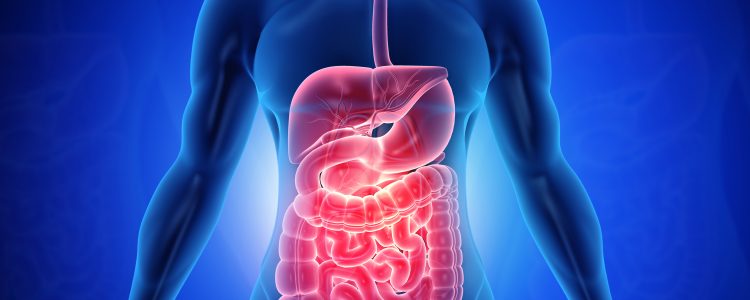Let’s talk gut MOTILITY!

It may be embarrassing to talk about poo, but Nutritional Therapists can’t shy away from discussing the bowel and its workings I’m afraid, because it’s fundamental to gut health and our practice. However bowel movement frequency and the motility factor can often be overlooked, because if something just feels ‘normal’ for one person, it won’t get reported, yet their normal, may not be ‘optimal’.
Of course the inconvenience and embarrassment of too frequent, ‘loose’ bowel movements will often result in professional help being sought, but when someone has a slow gut, and experiences a bowel movement every other day, or even just twice a week, they’re likely to tolerate this, unless severe bloating, pain on passing or haemorrhoids are also symptoms.
A doctor may tell you that normal bowel movement frequency can range from three times a day to three times a week. Well I would agree with three times a day, but is just three times a week healthy? It may not be uncommon, but that doesn’t make it optimal for our health. If constipation becomes a chronic problem, it may lead to rectal prolapse from straining, fissures (small tears in and around the anus), blockages and colonic fecal impaction, these are just some of the consequences.
Factors that influence gut motility
- Fluid intake
- Activity levels
- Food choices
- Age
- Medication
If pooing hard to pass, infrequent stools, it’s possible that insufficient fluid is being consumed. The bowel’s job is to absorb fluid from the soup like consistency of waste that arrives from the small bowel (where digestion occurs). It turns this soup into a firmer shaped stool, for temporary storage at the end of the digestive tract, until such time as is convenient for expulsion. If waste lingers in the colon for too long, fluid will continually be reabsorbed, resulting in a dry, hard to pass stool.
Exercise and activity can make a big difference to gut motility, the increased breathing and heart rate stimulates muscle contraction in and around the gut. It’s one reason that constipation is more common in the elderly, because they are more likely to be sedentary.
Food choices have a bearing because gut motility works best when there’s plenty of fibre in the diet. Fibre refers to the edible parts of plants/vegetables or carbohydrates that cannot be digested. Fibre is in all plant foods, including fruits, vegetables, grains, nuts, seeds, and legumes. Our digestive process in the small bowel extracts nutrients from these plant foods, whilst leaving the indigestible cellulose fibres to travel on to the large bowel, which benefit our microflora, whilst helping to bind and remove our waste products.
It’s particularly important to have plenty of fibre in your diet if you take medications which have side effects that impact bowel motility. If you think this might be the case, check the small print of your meds. Opiod pain relievers, antidepressants, calcium channel blockers, antispasmodics, blood pressure meds are just a few examples.
Another side effect of taking multiple medications is the subsequent depletion of nutrients that are needed by the liver as cofactors, i.e. nutrients that the liver uses to do its detoxifying work. The ingredients in many drugs add to that detoxification load. Magnesium is one such important nutrient, that serves as a cofactor in liver function, but it is also involved in more than 300 enzyme systems too, regulating many diverse biochemical reactions throughout the body. It’s also needed by the gut, and supports the smooth muscle contractions that keep the contents of the gut moving along.
Getting someone’s magnesium levels restored to an optimum level can often work wonders
Magnesium
Magnesium deserves its own heading because whilst clearly being an important mineral, intakes over the last few decades have noticeably declined, and there is now an epidemic of magnesium insufficiency especially in the over 50’s. Magnesium is found in many foods, especially dark green leafy veg, nuts and seeds, but intensive farming methods in depleted soils mean lower levels of many minerals and nutrients in today’s plant foods.
In my clinic, I see many people who have tried to improve bowel movements either with laxatives, fibre supplements (that often exacerbate slow motility), or prescribed medications, that have either had no effect or provided just temporary relief at best. Getting someone’s magnesium levels restored to an optimum level can often work wonders, and they also report sleeping better, improved energy levels, less anxious mood, less muscle twitching, improved glucose control – for those warned of insulin insensitivity, better blood pressure control, less heart flutters, less incidence of migraines, less PMS symptoms, the list goes on. And these ‘effects’ all have a good evidence base behind them – they are not just anecdotal.
The body USES magnesium in over 300 biochemical reactions, it’s no wonder that a deficiency should manifest in myriad ways.
And yes, bowel motility can be very simply improved by restoring magnesium levels in the body. Of course there are many ‘types’ of magnesium supplements being marketed, so book in for a consultation to discuss your symptoms, your health history and diet, and get some personalised advice on the subject, to see what improvements might be felt by achieving better gut motility and regular daily bowel movements!
See also the article on MAGNESIUM https://www.eleanorstrangnutrition.co.uk/magnesium/
